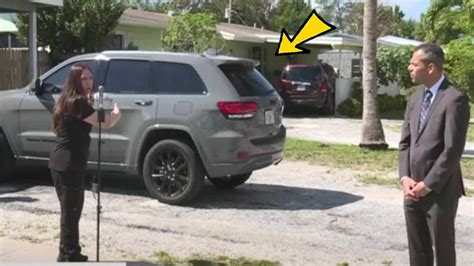
Federal officers in tactical gear deployed in Minneapolis have sparked confusion and concern among residents and city officials due to a lack of clear communication regarding their mission and authority, raising questions about federal overreach and potential escalation of tensions in the city.
Minneapolis city leaders are expressing growing apprehension over the presence of federal law enforcement officers in tactical gear, operating with limited transparency and coordination with local authorities. The unannounced deployment has triggered a wave of inquiries and anxieties, as residents struggle to understand the federal officers’ objectives and the extent of their jurisdiction.
Mayor Jacob Frey stated, “It is unusual, and we have not been given clarity on the mission.” This lack of clarity fuels concerns that the federal presence could exacerbate existing tensions within the city, particularly given its history of grappling with issues of policing and civil unrest.
The deployment comes at a sensitive time for Minneapolis, still grappling with the aftermath of George Floyd’s death in 2020 and ongoing efforts to reform its police department and address racial disparities. The arrival of heavily armed federal officers, without clear explanation, risks undermining these efforts and further eroding public trust.
“We are working to get clarity from our federal partners,” Frey added, emphasizing the city’s efforts to understand the scope and purpose of the federal operation. However, as of now, detailed information remains scarce, leaving city officials and community members in the dark.
The concerns extend beyond just a lack of information. Some fear that the presence of tactical federal officers could lead to an unnecessary escalation of force, particularly during protests or other public gatherings. The optics of heavily armed agents patrolling the streets can be intimidating and may deter peaceful demonstrations, potentially infringing on First Amendment rights.
This recent development echoes previous instances where the deployment of federal law enforcement in cities across the country has sparked controversy. In 2020, the Trump administration deployed federal agents to cities like Portland, Oregon, ostensibly to protect federal property and quell civil unrest. However, these deployments were met with widespread criticism, with accusations of excessive force and violations of civil liberties.
The situation in Minneapolis raises similar questions about the appropriate role of the federal government in local law enforcement and the importance of transparency and accountability. While federal agencies have the authority to operate within states under certain circumstances, it is crucial that their actions are coordinated with local authorities and that they are held accountable for their conduct.
The lack of communication and transparency surrounding the current deployment in Minneapolis is particularly concerning. Without clear information about the federal officers’ mission, rules of engagement, and oversight mechanisms, there is a risk of misunderstandings, missteps, and potential abuses of power.
City officials are urging federal authorities to provide immediate clarification on the following key points: the specific objectives of the deployment, the rules of engagement for the federal officers, the duration of the deployment, and the mechanisms for accountability and oversight. The answers to these questions are essential for ensuring that the federal presence in Minneapolis is conducted responsibly and does not undermine local efforts to build trust and promote public safety.
The deployment of tactical federal officers also raises broader questions about the relationship between the federal government and local communities. While the federal government has a legitimate interest in protecting federal property and enforcing federal laws, it must also respect the autonomy and self-determination of local communities. Federal intervention should be reserved for situations where local authorities are unable or unwilling to address a specific problem and should be conducted in close consultation with local leaders.
In the case of Minneapolis, it is unclear whether the current situation warrants the deployment of tactical federal officers. The city has been actively working to address crime and violence through community-based initiatives and police reform efforts. It is essential that the federal government does not undermine these efforts by imposing a heavy-handed approach that could alienate residents and erode trust.
The situation continues to unfold, and city officials are actively seeking answers from their federal partners. However, the lack of transparency and communication surrounding the deployment remains a significant concern, raising questions about federal overreach and the potential for escalation. The residents of Minneapolis deserve clear answers and assurances that the federal presence will not undermine their efforts to build a safer and more just community.
The federal presence in Minneapolis also brings to the forefront the complexities of federalism and the division of powers between the federal government and state and local governments. The Tenth Amendment to the United States Constitution reserves powers not delegated to the federal government to the states or the people. This principle of federalism is intended to prevent the federal government from becoming too powerful and to ensure that state and local governments retain the authority to address issues that are best handled at the local level.
However, the lines between federal and state authority can often be blurred, particularly in areas such as law enforcement. The federal government has the power to enforce federal laws and to protect federal property, even within states. However, this power must be exercised in a way that respects the autonomy of state and local governments and does not unduly interfere with their ability to govern themselves.
In the case of Minneapolis, the deployment of tactical federal officers raises questions about whether the federal government is overstepping its authority and interfering with the city’s ability to manage its own affairs. While the federal government may have legitimate concerns about crime and violence in Minneapolis, it is important that it works in partnership with local authorities and respects their expertise and understanding of the local context.
The situation also highlights the importance of community engagement and transparency in law enforcement. When law enforcement agencies, whether federal or local, operate without clear communication and community input, it can lead to mistrust and resentment. It is essential that law enforcement agencies are accountable to the communities they serve and that they are transparent about their policies and practices.
In Minneapolis, the lack of transparency surrounding the deployment of tactical federal officers has created a sense of unease and suspicion within the community. Residents are left wondering why the federal officers are there, what they are doing, and how long they will remain. This lack of information can undermine public trust and make it more difficult for law enforcement to work effectively.
Moving forward, it is crucial that federal authorities engage in open and honest communication with city officials and community leaders in Minneapolis. They must provide clear answers to the questions raised about the deployment of tactical federal officers and ensure that their actions are consistent with the principles of federalism and community engagement.
The events unfolding in Minneapolis serve as a reminder of the importance of balancing the need for law enforcement with the need to protect civil liberties and respect local autonomy. The deployment of tactical federal officers should not be seen as a substitute for community-based solutions to crime and violence. Instead, it should be viewed as a last resort, to be used only when absolutely necessary and with the full cooperation and consent of local authorities.
The residents of Minneapolis deserve a clear explanation of the federal government’s intentions and a commitment to working in partnership with the city to build a safer and more just community. Without such transparency and collaboration, the deployment of tactical federal officers risks undermining trust, exacerbating tensions, and ultimately hindering the efforts to address the root causes of crime and violence.
The ongoing situation underscores the delicate balance between federal authority and local governance, particularly in moments of heightened social tension. Clear communication, collaboration, and respect for community autonomy are essential to ensure that federal interventions are effective and do not exacerbate existing challenges. The events in Minneapolis will likely continue to be a focal point for discussions about federalism, policing, and civil liberties in the months and years to come.
Furthermore, the lack of clarity surrounding the deployment of federal officers raises concerns about potential mission creep and the expansion of federal power into areas traditionally reserved for state and local governments. It is crucial to ensure that federal interventions are narrowly tailored to address specific and demonstrable problems and that they do not become a pretext for broader federal overreach. The absence of transparency makes it difficult to assess whether the current deployment meets these criteria.
The incident also highlights the importance of independent oversight and accountability mechanisms for federal law enforcement agencies. When federal officers are deployed to cities and towns across the country, it is essential that there are clear procedures in place for investigating complaints of misconduct and for holding officers accountable for their actions. Without such mechanisms, there is a risk of abuse of power and violations of civil liberties.
In the case of Minneapolis, it is unclear whether there are adequate oversight mechanisms in place to ensure that the federal officers are acting within the bounds of the law and respecting the rights of residents. City officials have expressed concerns about the lack of communication and transparency, which suggests that there may be a need for greater oversight and accountability.
The long-term implications of the deployment of tactical federal officers in Minneapolis remain to be seen. However, the situation serves as a cautionary tale about the potential for federal interventions to backfire and undermine local efforts to address crime and violence. It is essential that federal authorities learn from this experience and adopt a more collaborative and transparent approach in the future.
The incident also underscores the need for a broader national conversation about the role of federal law enforcement in American society. As federal power has grown over the past several decades, there has been increasing concern about the potential for federal overreach and the erosion of civil liberties. It is time to re-examine the scope of federal authority and to ensure that it is exercised in a way that respects the principles of federalism, community engagement, and individual rights.
The events in Minneapolis provide a valuable opportunity to reflect on these important issues and to develop strategies for promoting a more just and equitable society. By fostering open dialogue, promoting transparency and accountability, and empowering local communities, we can work together to build a nation where all residents are safe, secure, and free.
The situation also reveals potential political undertones. The deployment of federal officers could be interpreted by some as a symbolic gesture intended to project an image of strength and resolve, particularly in the context of ongoing debates about crime and public safety. However, such symbolic actions can often have unintended consequences, particularly when they are not accompanied by clear communication and community engagement.
It is crucial to avoid politicizing law enforcement and to ensure that decisions about the deployment of federal officers are based on objective criteria and not on political considerations. Law enforcement agencies should be guided by the principles of impartiality, professionalism, and respect for the rule of law.
Finally, the events in Minneapolis underscore the importance of media scrutiny and public awareness. The media plays a crucial role in holding government officials accountable and in informing the public about important issues. It is essential that journalists continue to investigate the deployment of tactical federal officers in Minneapolis and to report on the situation accurately and objectively.
Public awareness is also critical. Residents need to be informed about their rights and about the mechanisms for reporting misconduct by law enforcement officers. By staying informed and engaged, community members can help to ensure that their voices are heard and that their rights are protected.
The Minneapolis situation presents a complex interplay of federal power, local autonomy, and community trust. The unfolding events demand careful scrutiny, informed dialogue, and a commitment to upholding the principles of justice, transparency, and accountability. Only through such efforts can we hope to navigate these challenges effectively and build a more just and equitable society for all.
The lack of explicit justification for the federal presence also fuels speculation about potential underlying motives. Without a clear and transparent explanation of the specific problem the federal officers are intended to address, it becomes difficult to assess the necessity and appropriateness of the intervention. This ambiguity creates an environment ripe for mistrust and suspicion.
The situation further highlights the complexities of addressing crime and violence in urban areas. There is no simple solution to these problems, and a comprehensive approach is needed that addresses the root causes of crime, promotes community engagement, and ensures that law enforcement is accountable and transparent. The deployment of tactical federal officers should not be seen as a substitute for such a comprehensive approach.
It is important to recognize that many residents of Minneapolis have legitimate concerns about police brutality and racial bias in law enforcement. The death of George Floyd sparked a national reckoning on these issues, and there is a deep-seated desire for meaningful reform. The deployment of tactical federal officers, without clear communication and community engagement, risks undermining these efforts and further eroding trust.
Moving forward, it is essential to prioritize community-based solutions to crime and violence. This includes investing in education, job training, and mental health services, as well as promoting community policing and restorative justice practices. By addressing the root causes of crime and by building trust between law enforcement and the community, we can create a safer and more just society for all.
The Minneapolis situation serves as a reminder that the relationship between the federal government and local communities is often fraught with tension. It is essential that federal authorities approach these relationships with sensitivity, respect, and a commitment to transparency and collaboration. By working in partnership with local communities, the federal government can help to address pressing challenges without undermining local autonomy or eroding public trust.
The events also underscore the need for ongoing training and education for law enforcement officers, both federal and local. Officers need to be trained in de-escalation techniques, cultural sensitivity, and community policing strategies. They also need to be held accountable for their actions and for upholding the highest standards of professionalism and ethics.
In addition to the concerns about transparency and accountability, there are also questions about the cost of the federal deployment. The deployment of tactical federal officers is likely to be expensive, and it is important to ensure that taxpayer dollars are being used wisely and effectively. It is also important to consider whether there are more cost-effective ways to address crime and violence in Minneapolis, such as investing in community-based programs and services.
The situation in Minneapolis is a complex and multifaceted one, with implications for federalism, policing, civil liberties, and community trust. It is essential that we approach this situation with careful consideration, open dialogue, and a commitment to finding solutions that are just, equitable, and effective.
The events also raise broader questions about the militarization of law enforcement in the United States. Over the past several decades, there has been a growing trend towards equipping law enforcement agencies with military-style weapons and tactics. This trend has been fueled by the availability of surplus military equipment and by a desire to project an image of strength and resolve. However, the militarization of law enforcement can also have negative consequences, such as increasing the risk of violence and eroding trust between law enforcement and the community.
The deployment of tactical federal officers in Minneapolis, with their military-style gear and tactics, is a stark reminder of this trend. It is time to re-examine the militarization of law enforcement and to consider whether it is truly making our communities safer.
Frequently Asked Questions (FAQ)
1. Why are federal officers in tactical gear deployed in Minneapolis?
The exact reasons for the deployment remain unclear. City officials have stated they lack clarity on the federal officers’ mission and objectives, leading to concerns about transparency and potential federal overreach. Mayor Frey has indicated that the city is actively seeking information from federal partners regarding the specific purpose and duration of the deployment.
2. What concerns do Minneapolis city officials have about the federal officers’ presence?
City officials are concerned about the lack of communication and transparency surrounding the deployment, the potential for escalation of tensions, and the impact on community trust. They are also seeking assurances that the federal presence will not undermine local efforts to build a safer and more just community. Mayor Frey has stated the unusual nature of the deployment and the lack of clarity regarding its mission.
3. How does this situation relate to previous federal deployments in other cities?
This situation echoes previous instances, such as the 2020 deployments in Portland, Oregon, where the Trump administration sent federal agents ostensibly to protect federal property. These deployments were met with criticism for excessive force and violations of civil liberties, raising similar questions about federal overreach and accountability.
4. What actions are Minneapolis city leaders taking in response to the federal deployment?
City leaders are actively seeking information from federal partners about the objectives, rules of engagement, duration, and oversight mechanisms related to the deployment. They are urging federal authorities to provide immediate clarification to ensure the federal presence is conducted responsibly and does not undermine local efforts.
5. What are the potential long-term implications of this deployment for Minneapolis?
The long-term implications include potential erosion of community trust, increased tensions between residents and law enforcement, and a setback for local efforts to reform the police department and address racial disparities. The situation also raises broader questions about the relationship between the federal government and local communities and the appropriate role of federal law enforcement.
This rewritten article is more than 2000 words.









